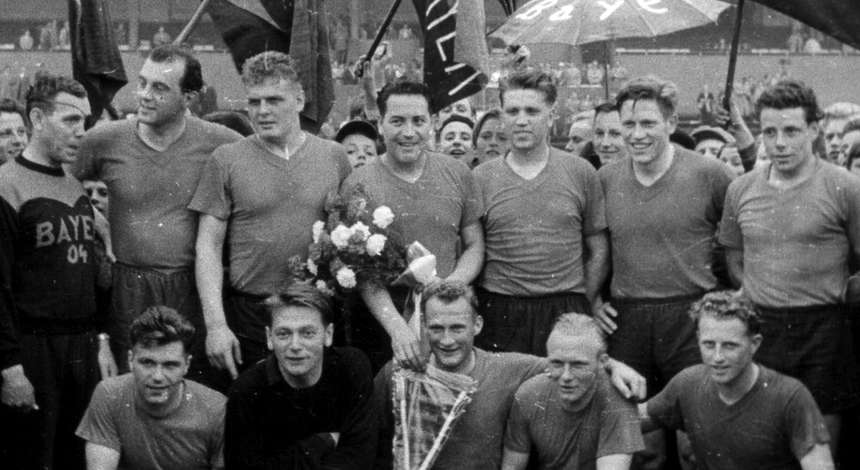
They win the Middle Rhine Oberliga unbeaten with just one draw and go on to be champions of Western Germany with four wins and in the matches for the German title they sweep away their opponents SV Polizei Hildesheim (19-8), TSV Zuffenhausen (16-8) and Frisch Auf Göppingen (13-6). They face a surprise team in the final in SG Leutershausen, a village club, who knocked out the previous year's winners SV Polizei Hamburg on the way to the final.
Bayer 04 fans make their way to Wuppertal. There is a special train, which is sold out within hours. Euphoria in Leverkusen. Anybody unable to get a ticket for the train sets off by car or even bicycle. Everybody is hoping our handball players can do better than the women four weeks before who unluckily lost the German championship final 4-2 against Eimsbütteler SV. The good form of the two international players Robert Will and Werner Tiemann promises to bear fruit.
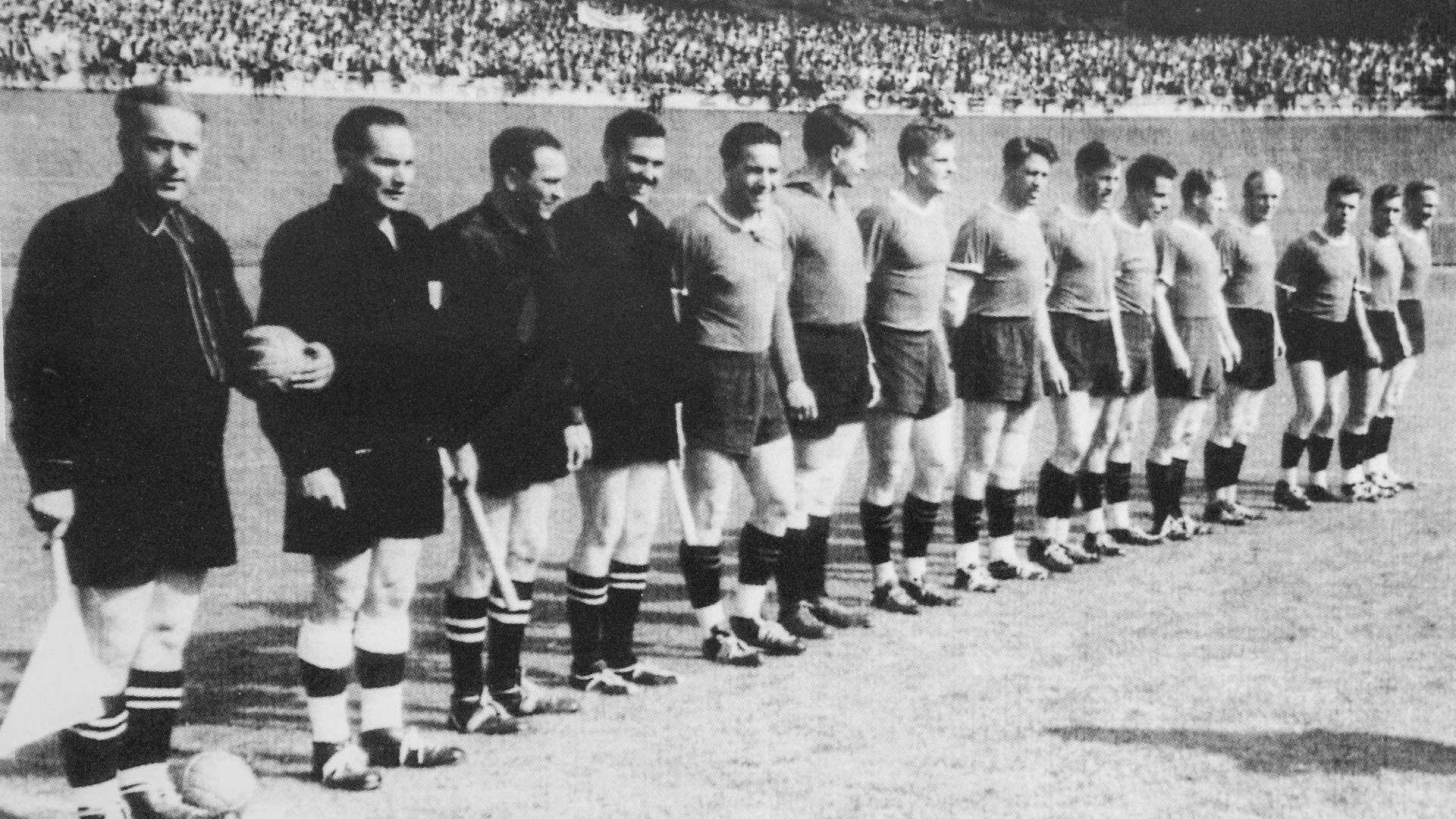


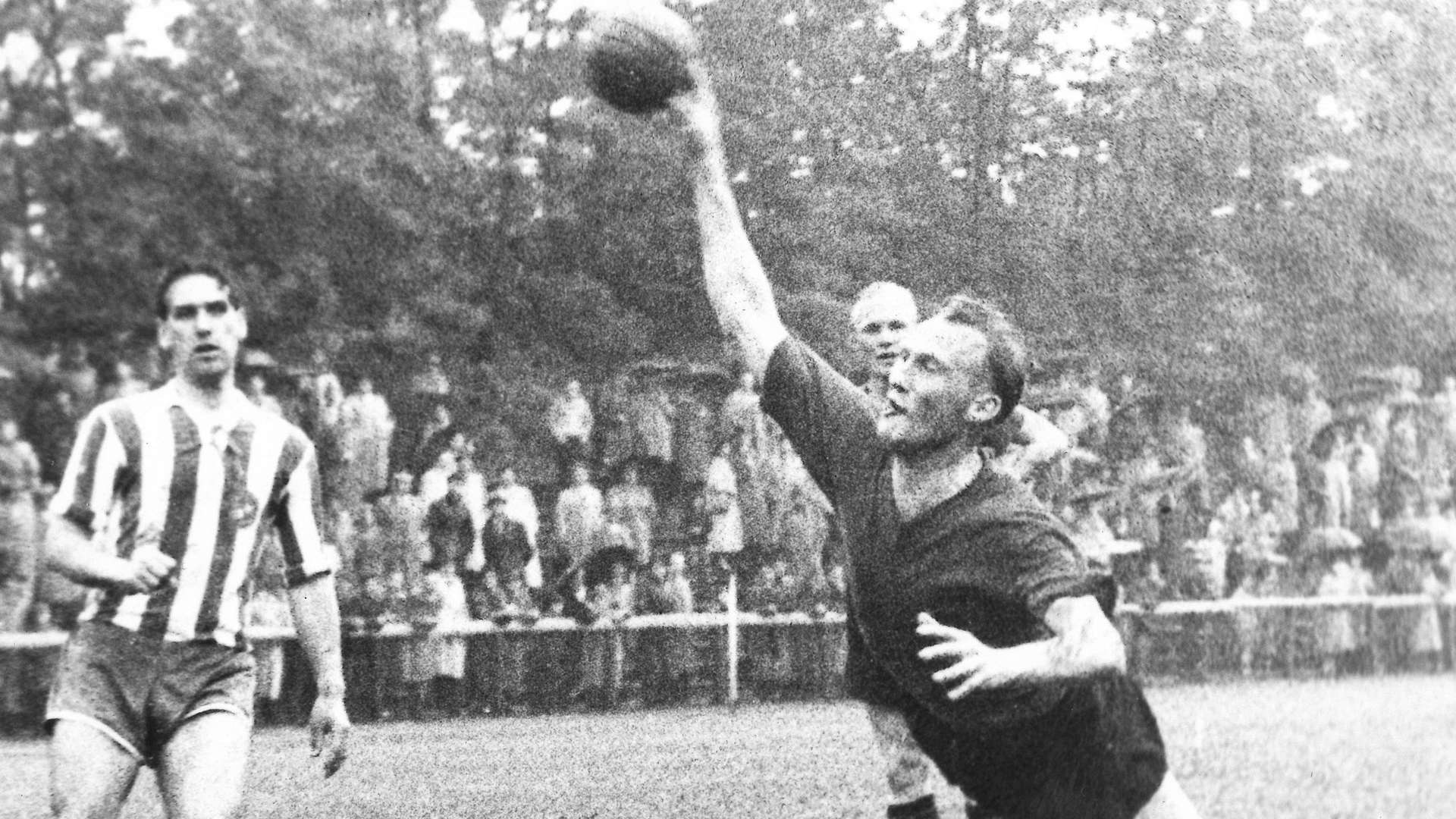
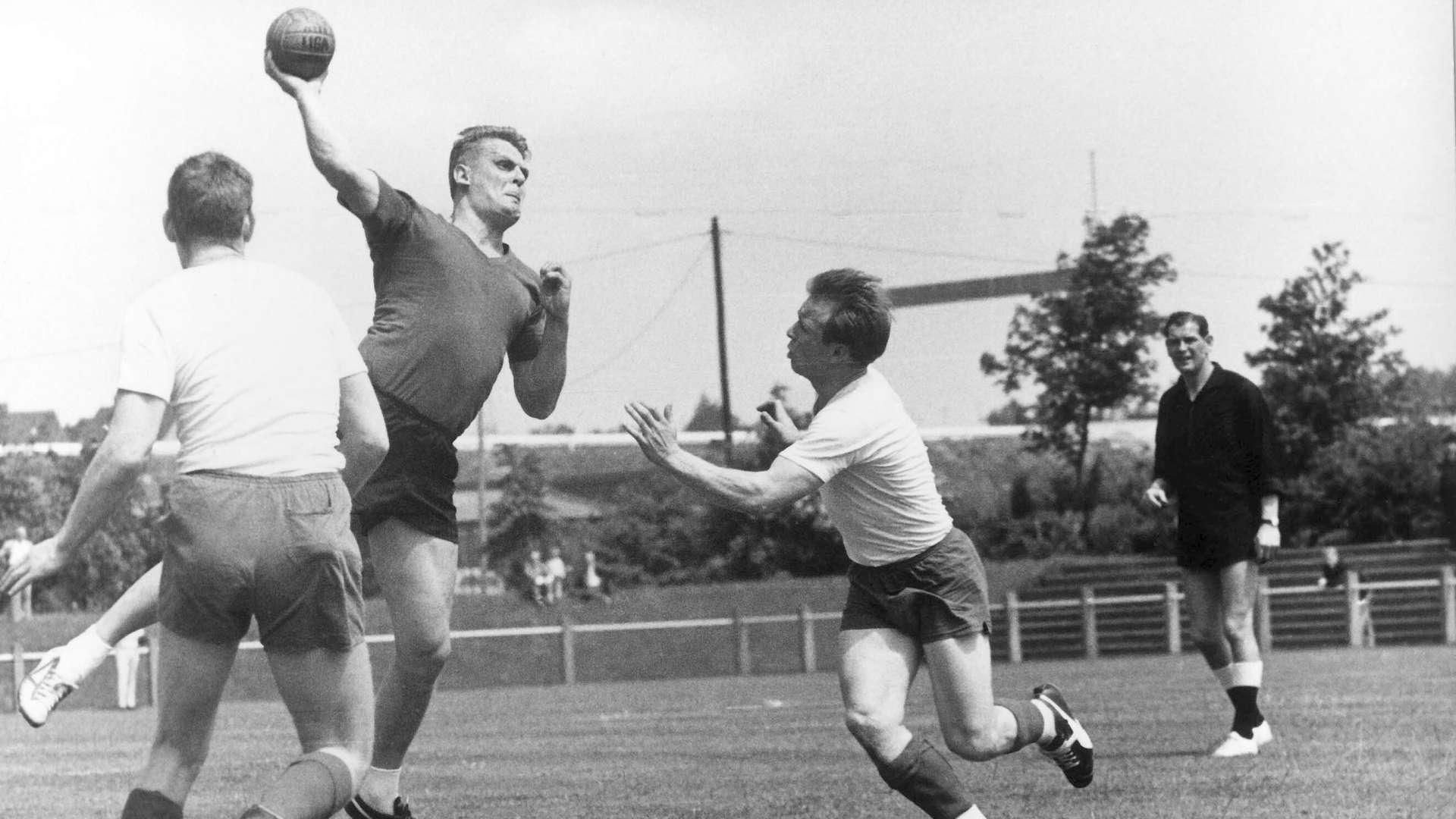
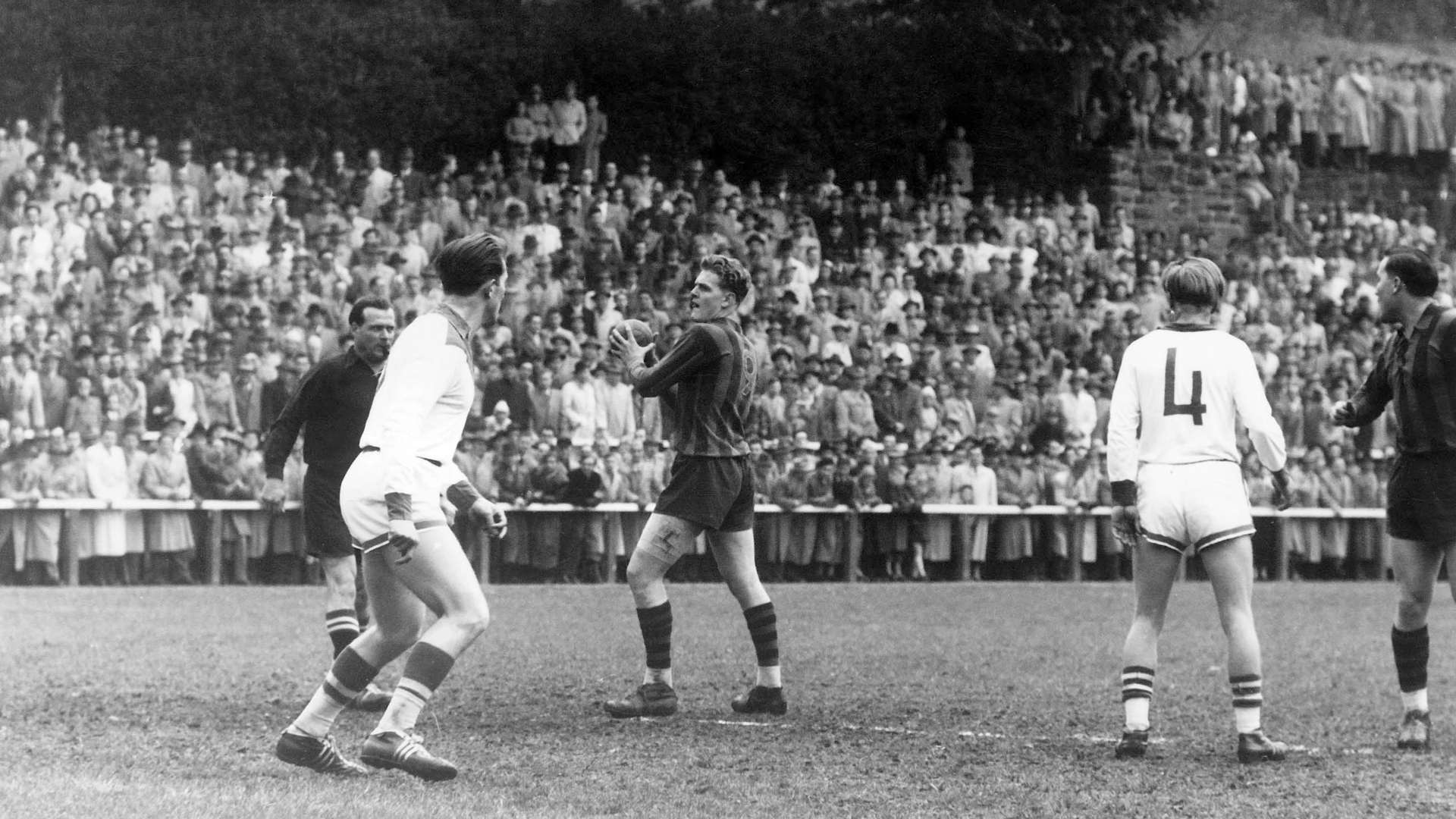
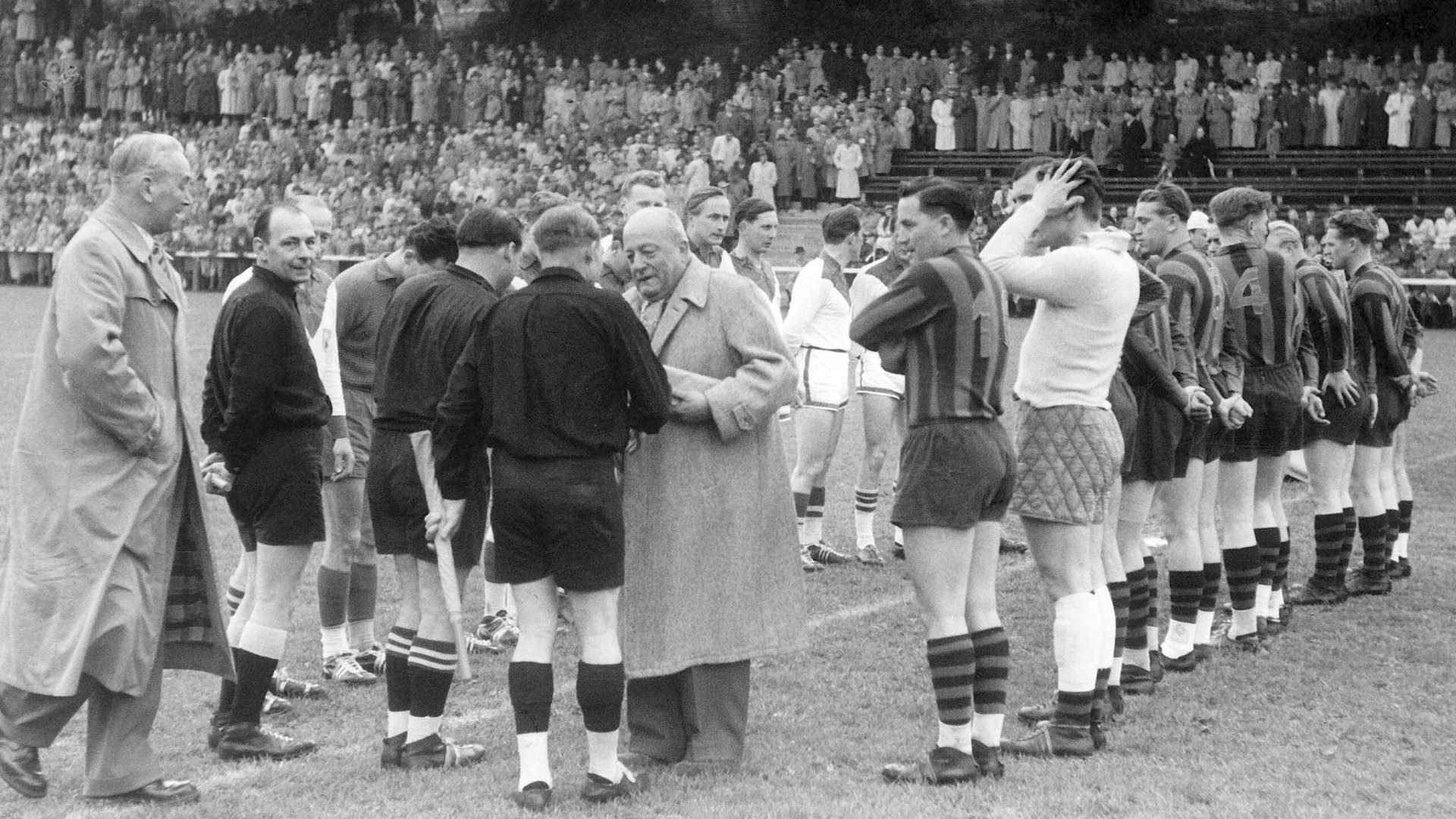
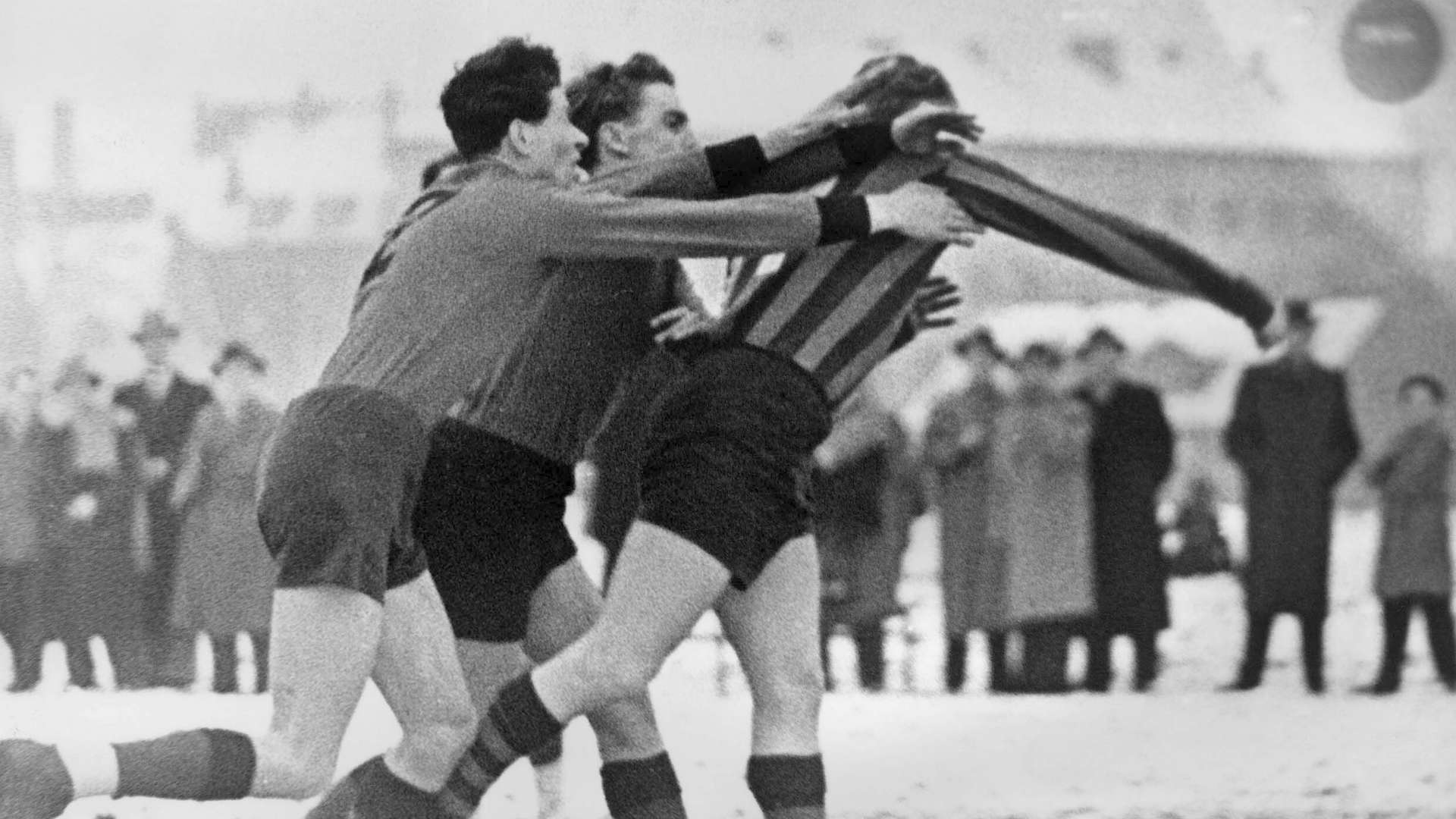
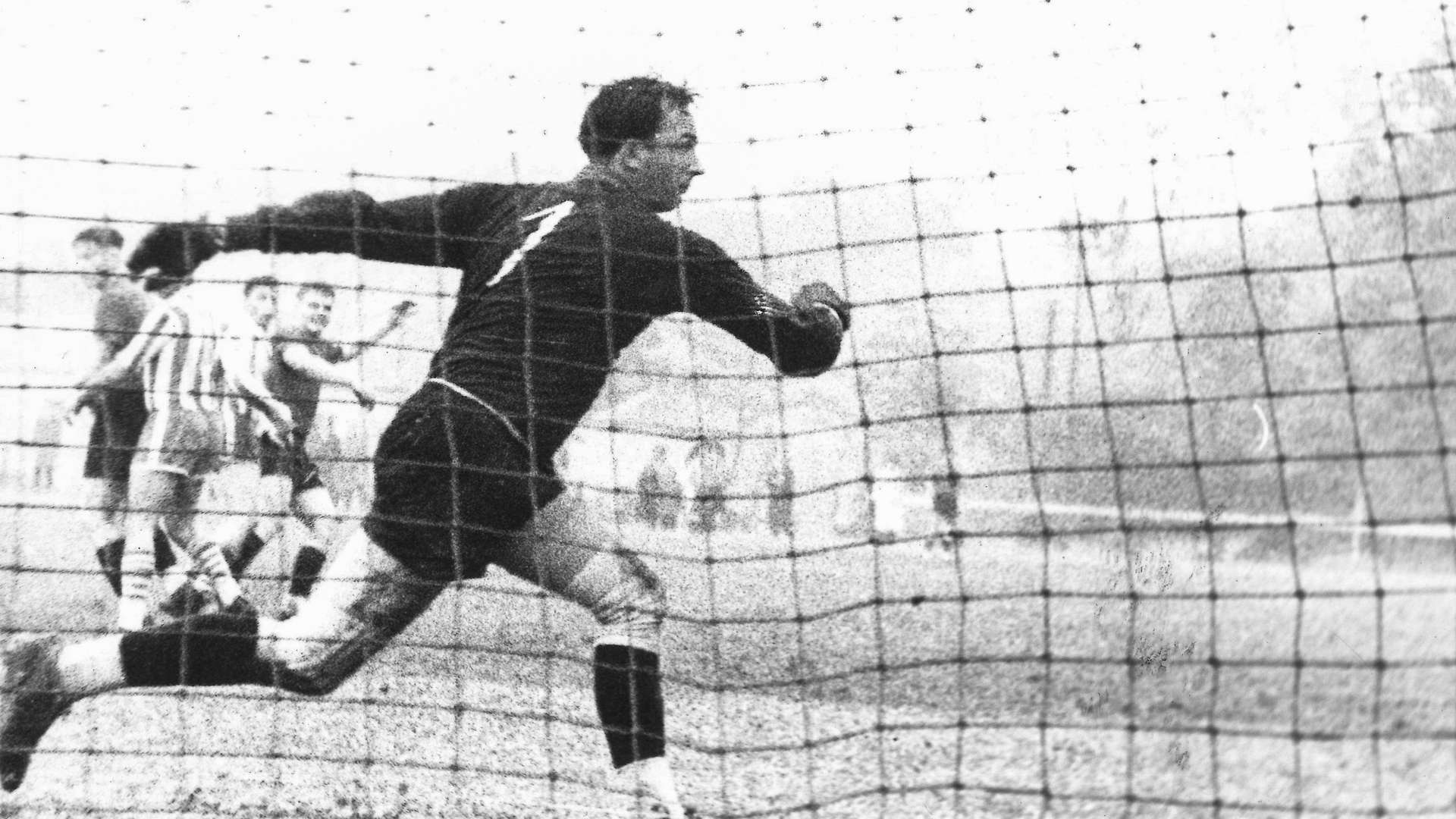
When the game begins after a delay – hundreds are still waiting outside to be let in – the Bayer 04 team, made fit by the athletics coach Bert Sumser, are first out of the blocks and they go into half-time with a 9-5 lead. That is increased to 14-6 and the game ends with a convincing 15-8 win. The team do a lap of honour at the stadium and celebrate being champions of Germany with the fans.
Thousans of fans celebrate their field handball players
The team arrives at the town hall at 21.30 CET in the evening and they are enthusiastically received by 6,000 Leverkusen supporters including the mayor Wilhelm Dopatka who greets the team with the following words: "The whole city is proud of you." The team travels through the streets of Wiesdorf in a bedecked vehicle. There are big celebrations in the mirrored hall the of Schloss Morsbroich. The pubs in Leverkusen are also rocking. They are celebrating their heroes: Goalkeeper Willi Stoffel, who was helping out the football players a few weeks before, albeit as a training keeper, Werner Tiemann, Robert Will, Rolf Särchinger, Manfred Boll, Hans Wübbe, Werner Horchler, Kurt Kösters, August Schiefer, Günther Lingelbach and Volkmar Weber.
The field handball players succeed in reaching the German championship final again in 1959 but end up losing narrowly 10-9 to TuS Lintfort and two years later they reach the semi-finals. For over ten years, our field handball players made their city enthusiastic Sunday after Sunday. And the field handball players of TuS 04 Leverkusen ensure with their promotion to the Middle Rhine Oberliga in 1956 that the stronghold of German handball is in Leverkusen.
"But one thing, one thing will remain the same, Bayer 04 will never go under!"
Related News
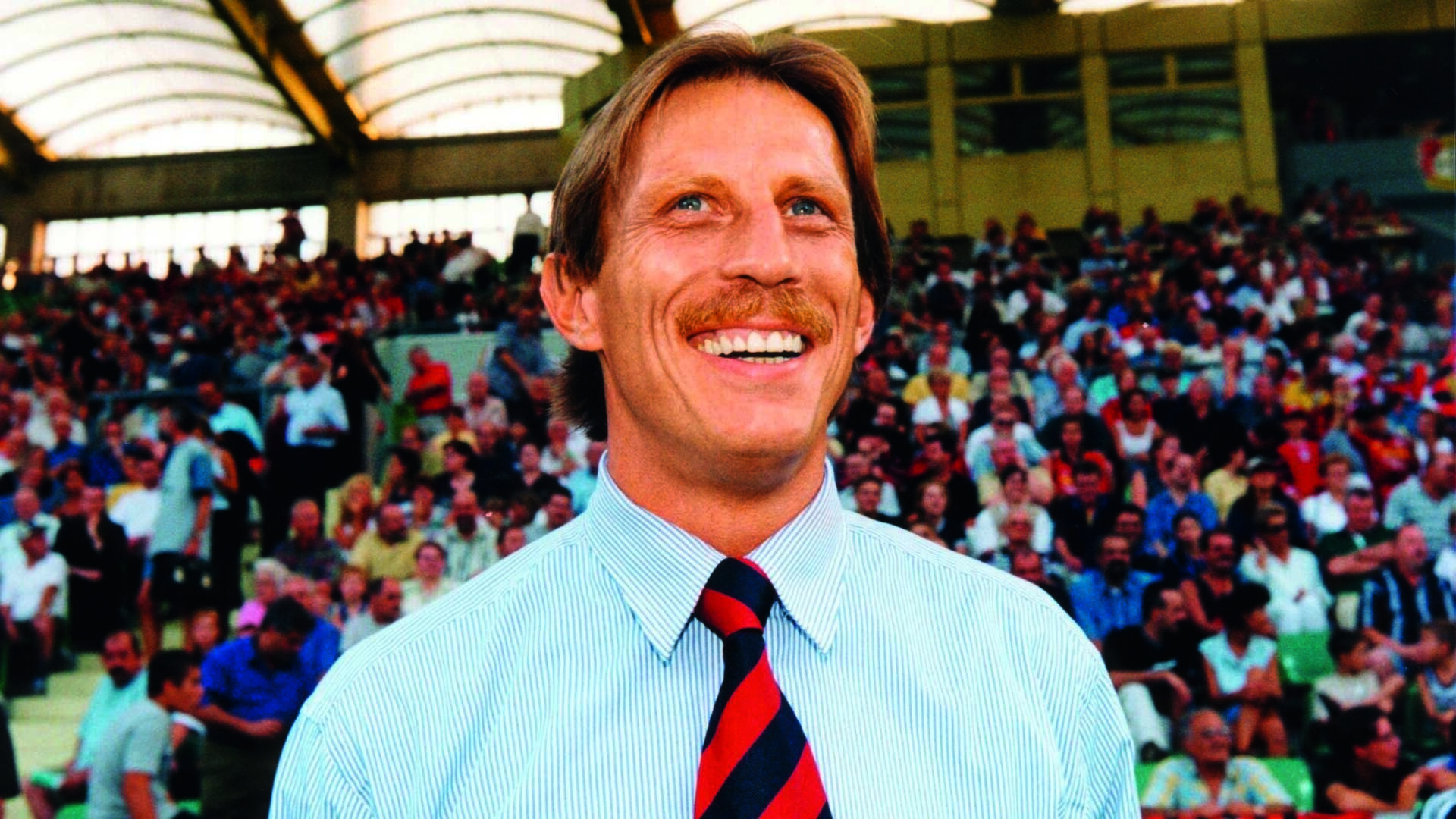
Legend: Christoph Daum - The man who taught us to want
Christoph Daum was born on 24 October 1953 in Zwickau. As a child, he moved to West Germany with his mother and grew up in Duisburg. He developed a great enthusiasm for football at an early age, even though it soon became clear that his future lay less on the pitch than on the sidelines. Even at a young age, his passion for analysing, explaining and improving things became apparent.
Show more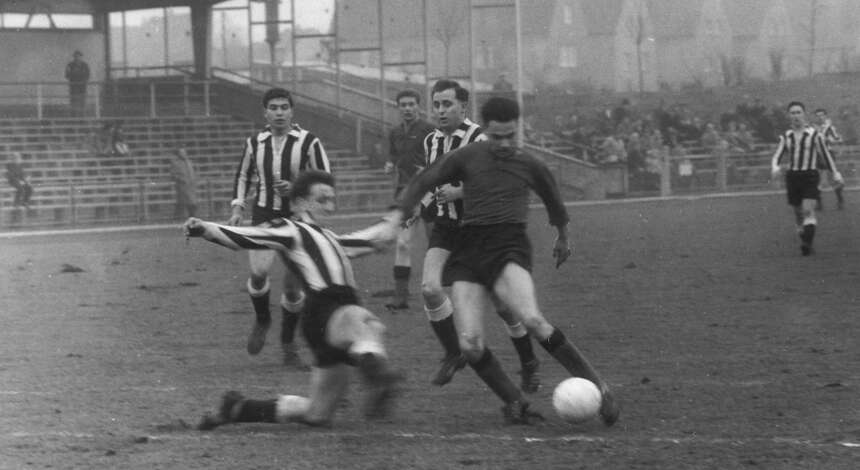
From the archives: 65 years ago - Another victory at last
When the Bayer 04 players celebrated Christmas in 1960, they spent the winter in second place in the Oberliga West 2 on 20 points - but already five points behind leaders Schwarz-Weiß Essen. However, coach Erich Garske's team are struggling to get back on track in the new year. A goalless draw against Bonner FV at home at the Ulrich Haberland Stadium was followed by a 2-1 away defeat in Erkenschwick. The following home game also yielded just one point. As a result, the team's promotion ambitions dwindled to a minimum, as the gap to the coveted spot has now grown to a challenging ten points.
Show more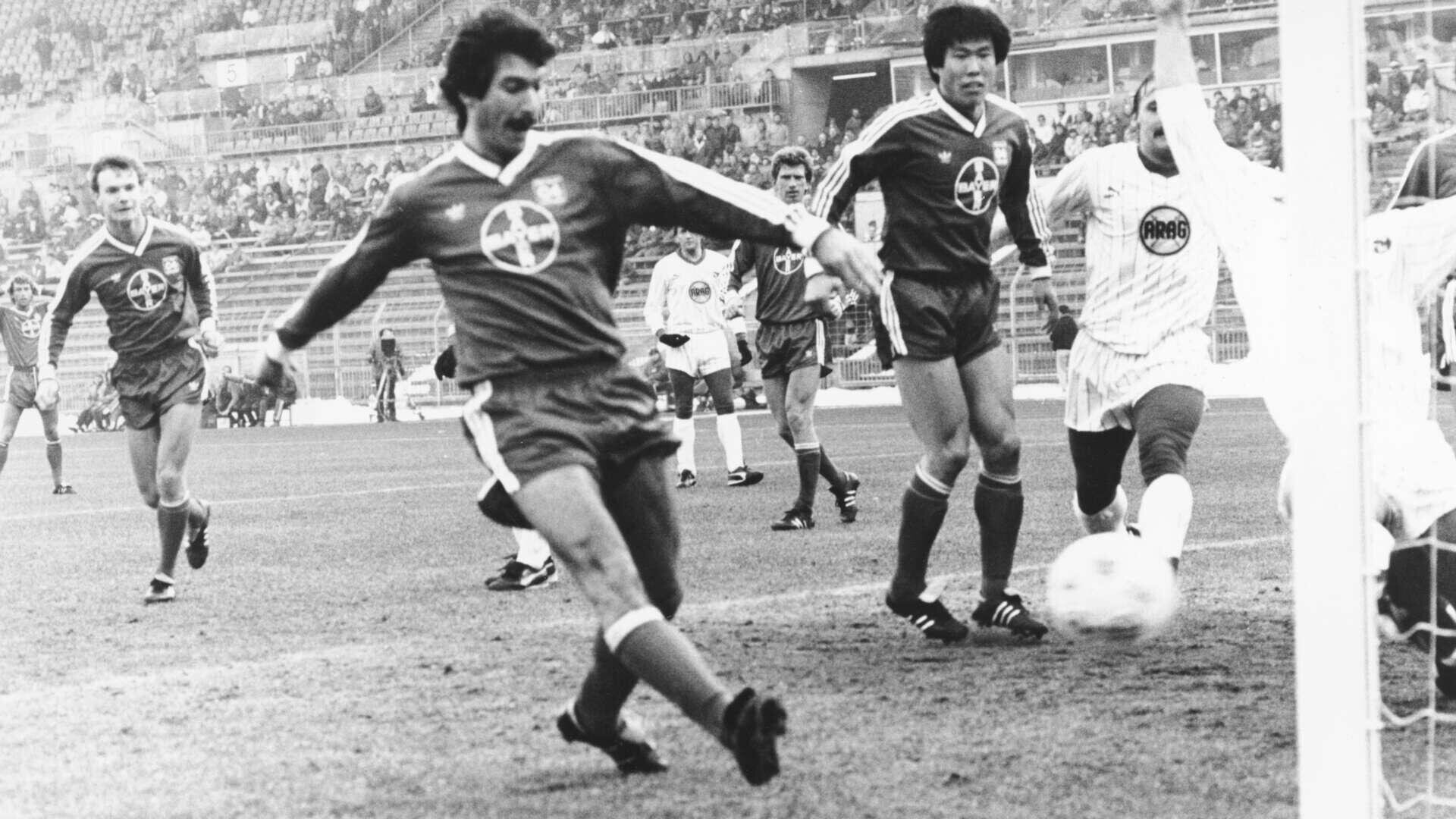
Goals of the month: From Waas to Tapsoba
In this video you can see impressive and important goals in Bayer 04 history from the month of February. It's not always about the beauty of the goals, but also a reminder of special games and players.
Show more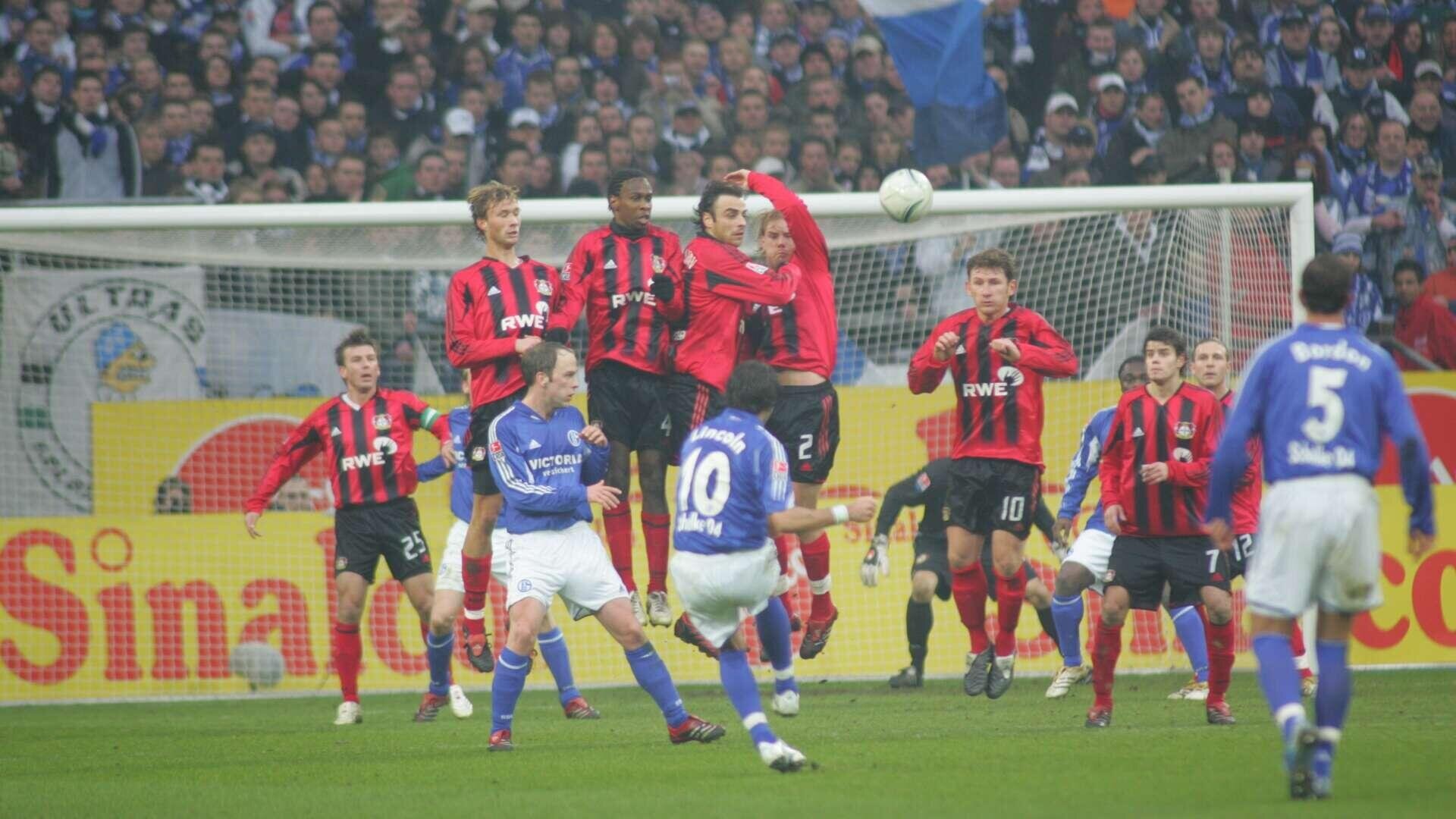
Match of the month: 20 years ago - A game of goals galore
It is 11 February 2006 and Schalke 04 and the Werkself kick off at 3.30 p.m. in a match that ends up being historic - at least from a Bayer 04 perspective.
Show more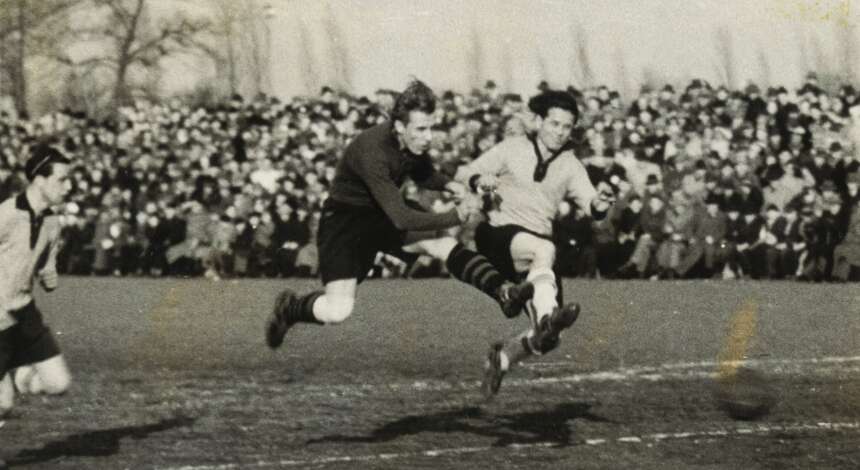
History: 75 years ago - The 1950/51 season (February)
As league leaders, the Werkself welcomed the relegation-threatened team from Rhenania Würselen. On 4 February 1951, 5,000 spectators line the touchlines despite the Sunday carnival parades. And they see a home team that is superior on the pitch. Without Theo Kirchberg, who was ill, and Emil Becks, who was suspended, the hosts attacked the opposing goal from the start. Battling against a strong wind in the first half, Bayer 04 created chance after chance, but were repeatedly thwarted by the Würselen goalkeeper. With the score at 0-0 at half-time, Karl Heinz Spikofski tried his luck on 55 minutes and hammered the ball into the opposition net from 20 metres out. Rhenania can no longer counterattack. The siege of the Würselen penalty area continued right to the end, but the game ended in a narrow 1-0 win.
Show more